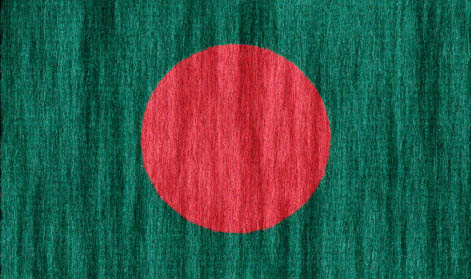The education ministry has asked Transparency International Bangladesh (TIB) to provide details of its recent report that allegedly found unbridled corruption in private universities in the country.
In a letter sent to TIB yesterday, the ministry said specific information is needed as it wants to take proper action on the alleged corruption. The ministry sought the list of 22 private universities covered by the TIB study, the list of 94 Dhaka-based private and public universities mentioned in the report and identities of the individuals who provided the information and of those involved in paying or receiving money.
The TIB was asked to provide the information by July 17. The letter to TIB executive director Dr Iftekharuzzaman was signed by the senior assistant secretary (University 1) of the education ministry. The TIB study report released on June 30 said corrupt quarters are involved in getting approval for private universities, appointment of top officials, including vice-chancellors, in exchange for bribes.
Soon after the release of the report on June 30, the education ministry and the University Grants Commission (UGC) termed the findings untrue.
Education minister Nurul Islam Nahid had even asked the TIB to apologise for the “false” report. In a media release later, the TIB clarified its position regarding reaction of various government bodies on its study on corruption in 22 private universities.
Soon after the release of the report on June 30, the education ministry and the University Grants Commission (UGC) termed the findings untrue.
The TIB claimed that the data had been collected from stakeholders in the education sector. It contacted several officials-employees of the ministry and the UGC at various levels of the study and there had been direct and telephone conversations and discussions.
The UGC provided the TIB with information in written form on March 27. The Berlin-based non-government orgnisation, however, hailed the UGC for forming a three-member committee to look into the information that came up in the report.
The report alleges that billions of taka changed hands for approvals, while a nexus of ministry and UGC officials paved the way for such irregularities. The TIB report revealed that private universities are involved in payments at different stages - from taking approvals for setting up a university to awarding certificates to students.
It said, around 10mn taka to 30mn taka are exchanged for approving a private university and 50,000 taka to 2,00,000 taka for getting clearances to appoint vice chancellors, pro-vice chancellors and treasurers.
A university pays up to 30,000 taka for getting approval for opening a faculty and 20,000 taka for a department. A section of officials at the education ministry, the University Grants Commission (UGC) and the universities are linked to these transactions, said the TIB. The study was conducted at 22 universities in Dhaka, Chittagong and Sylhet between June 2012 and May this year.
Some universities give fake certificates in exchange for 50,000 taka to 3,00,000 taka, it added. “The amount varies from university to university,” said Mohamed Rafiq Hasan, director of research and policy department at the TIB.
The study found a big difference in tuition fees for the same course at different universities. For example, the minimum tuition fee for BBA programme is 2,50,000 taka and the highest 5,50,000 taka. The authorities have not prepared rules under the Private University Act-2010 even four years into its formulation, it said.
More than 3,14,000 students now study at 79 private universities.
“This sector should have been treated as a non-profit one. But some entrepreneurs consider it as a way of making profit, which is a matter of concern,” said Iftekharuzzaman, executive director at the TIB.
And what is more worrying is that the regulatory authority UGC now seems to be accommodating this attitude of entrepreneurs, he said.
“Higher education is now at risk of becoming a commercial commodity,” Iftekharuzzaman added.
According to the TIB study, the private universities were supposed to obtain permanent certificates 12 years after their inception, but only one of the 22 surveyed universities got permanent certificates. The rest now operate by renewing their temporary certificates.
Only six of the 22 universities have their own campuses. The board of trustees interferes directly in the functions of most of these universities.
Family members of the university owners or people not linked with the education sector get priority for membership of the trustee board, it added.
Of the 79 private universities, 27 are without any VCs, 61 without pro- VCs, and 49 without any treasurer.
Presenting the findings, Nina Shamsun Nahar, deputy programme manager at the TIB, said most of the universities don’t allocate money for research, and 13 of the 22 universities have no such projects.
Though the government has made it illegal for a university to have an outer campus, some have opened outer campuses and are calling them “admission and counselling centres”, she said.
Many teachers take gifts and cash from students for giving them pass marks. The students also put pressure and even threaten teachers to increase marks or to pass, it said.

